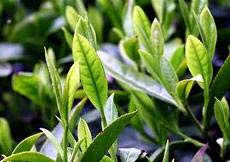 These days, being on social media is a part of life for many. People like me, who do not have any presence on the social media are deemed quirky. When the social media "revolution" (if you can call it that) started, facebook was all the rage. Everyone seemed to be on facebook and everyday you heard people extolling the features of facebook and their posts on the platform and the likes received. My nature is to avoid anything that is hyped about. Facebook was the most hyped of all and I steadfastly avoided it even though I received numerous invites through email (yes, I do use email). In the initial days, when I told people that I did not have a facebook account, the reaction was one of disbelief. "What! Not on facebook?" and something along those lines. Now they have probably come to the conclusion that there are strange people who prefer to exist outside of the social media and that I am one of them. So I am longer bombarded with invites, which is a relief.
These days, being on social media is a part of life for many. People like me, who do not have any presence on the social media are deemed quirky. When the social media "revolution" (if you can call it that) started, facebook was all the rage. Everyone seemed to be on facebook and everyday you heard people extolling the features of facebook and their posts on the platform and the likes received. My nature is to avoid anything that is hyped about. Facebook was the most hyped of all and I steadfastly avoided it even though I received numerous invites through email (yes, I do use email). In the initial days, when I told people that I did not have a facebook account, the reaction was one of disbelief. "What! Not on facebook?" and something along those lines. Now they have probably come to the conclusion that there are strange people who prefer to exist outside of the social media and that I am one of them. So I am longer bombarded with invites, which is a relief.
Facebook and other social media have, in my view, altered the social behavior of people. Now, if you happen to be on facebook and your best friend posts something online on his or her facebook page, you are expected to "like" his or her post, lest you offend him or her. Another nutty phenomenon is the way people gather or rather demand facebook "likes". Statements like "Don't forget to like us/me on facebook..." has become normal. There are even sites telling you how to increase the "likes" on your facebook page. I always thought it would be considered loony if you ask everyone around to like you. I can never understand how one can demand to be liked, but apparently this is normal behavior for someone on facebook. Twitter, apparently is less addictive, but I do not know. The craze for facebook seems to be waning of late, but the new craze is Instagram, which seems to be attracting more people. facebook apparently is passé.
For me, social media has no attraction. The "charms" of facebook and other social media platforms do not interest me. I feel that for most part, they have brought out the worst in people. If something is posted by someone which is not to the liking of others, he or she is "trolled" by those who are opposed to it. The relative anonymity of the Net is convenient for such people to launch vicious attacks on the person. Such controversies over celebrities' (and others) social media posts have become fairly common. In less developed nations, insensitive posts have resulted in violence. I can hear someone saying "Ah, but you are looking only at the negatives". There is no denying that good things have happened on account of social media posts, but these are not enough to balance out the negatives. Sure, social media activity is one of the ways to keep the brain active in old age, which has been proved by studies. But that does not distract from the negative fallout of overuse of social media. It has security implications too. These days many people put out their entire lives (probably with the exception of their bank accounts) on their social media accounts and one only needs to trawl through their posts to know almost everything about them. What can be done with all that info is anybody's guess. The volume of data the social media companies have on their users is mind boggling and there have been controversies here too. Addiction is becoming a serious problem. Some people seem to live more online than in real life. The first thing they check on waking up is their social media accounts and it is also the last thing they do before going off to sleep. I prefer to live a "normal" (from my view point anyway) life untrammeled by all the rigmarole of facebook and other such platforms. I have no use for them and nor am I willing to let some company build up data about me through social media usage. I value my privacy more than anything else and therefore prefer to remain a "non-social (media) person" if I can use the term.













